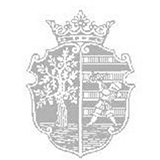Introduction
Dr. Hoch’s Konservatorium is a historic and influential music school located in Frankfurt am Main, Germany. It provides comprehensive music education for students of different ages and musical levels, covering multiple levels of teaching from early music enlightenment to Bachelor of Music.
Overview
Student size: The specific number of students is not clearly disclosed, but judging from its rich curriculum and wide range of subject coverage, the number of students should be considerable, attracting students from different regions and backgrounds to study music here.
Faculty: It has an excellent faculty, including many well-known musicians and music educators. These teachers not only have deep musical expertise, but also have rich teaching experience, and can provide students with high-quality music education.
History and establishment time
The academy was founded on September 22, 1878 in Frankfurt am Main, and was established by Dr. Joseph Hoch of Frankfurt with a donation of 1 million German gold marks. Its first dean, Joachim Raff, laid the foundation for the development of the academy, including formulating courses and hiring teachers. At the end of the 19th century, Clara Schumann taught here, which earned it international reputation.
School Strength
Course Setting: It offers courses in many fields such as music education, instrumental performance, vocal music, music theory, composition, early music, jazz and popular music. It has programs such as music education youth and adult department, basic music department, university preparatory department, and ballet school. Its bachelor's degree program in music performance and teaching covers all musical instruments, vocal music, music theory, composition, performance and basic music teaching.
Teaching mode: Focus on the combination of practice and theory, provide students with rich practical opportunities through holding concerts, participating in competitions, cooperating with professional orchestras, etc., help students improve their music performance ability and artistic accomplishment, cultivate students' professional skills and comprehensive qualities, and enable them to pursue attractive career paths in the field of music.
Institutional nature
A public music college is a nationally certified music education institution with a legal foundation nature.
Educational philosophy
Committed to cultivating students' love and professionalism for music, not only focusing on imparting music knowledge and skills, but also emphasizing the cultivation of students' musical expression, creativity and aesthetic ability, so that students can continuously explore and develop their artistic personality in music learning, regard music as a way of cultural inheritance and communication, and cultivate students' sense of social responsibility and cultural mission.
Key laboratories and disciplines
Key disciplines: Instrumental performance, music education, composition and other disciplines are the key disciplines of the college. The instrument performance major covers a variety of instruments and has cultivated many excellent performing talents; the music education major has provided a large number of professional teachers in the field of music education; the composition major focuses on cultivating students' creative ability, and students' works have repeatedly won good results in various music competitions and performances.
Key laboratory: No clear key laboratory was found in the school, but the school provides students with practice places and performance opportunities through cooperation with professional orchestras, music institutions, etc., which can be regarded as an important support for its practical teaching.
Department
The college has several departments, including the Department of Music Education Youth and Adults, the Department of Basic Music, the Department of Early Music, the Department of Jazz and Popular Music, the Department of Composition, the Department of Ballet, etc. Each department has its own unique teaching goals and curriculum settings, providing students with diversified music learning options.
Ranking
The specific ranking of the college in the international or domestic authoritative university rankings has not been found, but as a music college with a long history and important influence, it enjoys a high reputation in the field of music education in Germany.
Fees
Tuition fees: According to the new fee standard starting from October 1, 2020, students need to pay tuition fees to participate in the college's courses. The tuition fees are charged annually and paid in 12 installments. The specific amount varies depending on the course and study program.
Other fees: Students may also need to pay other fees such as textbook fees and instrument rental fees. In addition, there may be additional expenses for participating in performances, competitions and other activities.
Campus
Campus location: Located at 16 Sonnenmann Street, Frankfurt, Hesse, Germany, it is located in the center of Frankfurt, with convenient transportation and a strong cultural and artistic atmosphere around it.
Teaching facilities: It has modern teaching facilities, including concert halls, rehearsal rooms, piano rooms, music libraries, etc. The concert hall provides students with a professional venue for concerts and performances. The rehearsal rooms and piano rooms are equipped with high-quality musical instruments and audio equipment to meet students' daily practice and rehearsal needs; the music library has a rich collection of music books, music scores, records and other materials, which provides strong support for students' learning and research.
Living facilities: The living facilities around the campus are complete, including student dormitories, restaurants, supermarkets, etc., providing convenient living conditions for students.
-

Heidelberg University
-

University of Freiburg
-

University of Jena
-

University of Marburg
-

University of Rostock
-

University of Halle-Wittenberg
-

University of Bayreuth
-

Leipzig University
-

University of Tübingen
-

Humboldt University of Berlin
-

Mesoamerican University
-

Istmo University
-

Mariano Galvez University of Guatemala
-

Regional University of Guatemala
-

Galileo University
-

Francisco Marroquín University
-

Rafael Landívar University
-

University of the Valley of Guatemala
-

University of San Carlos of Guatemala
-

Technological Institute of Tlaxcala Plateau
-

Golfo University
-

Technological University of South Sonora
-

Technological University of Huejotzingo
-

Tizimín Institute of Technology
-

Chilpancingo Institute of Technology

